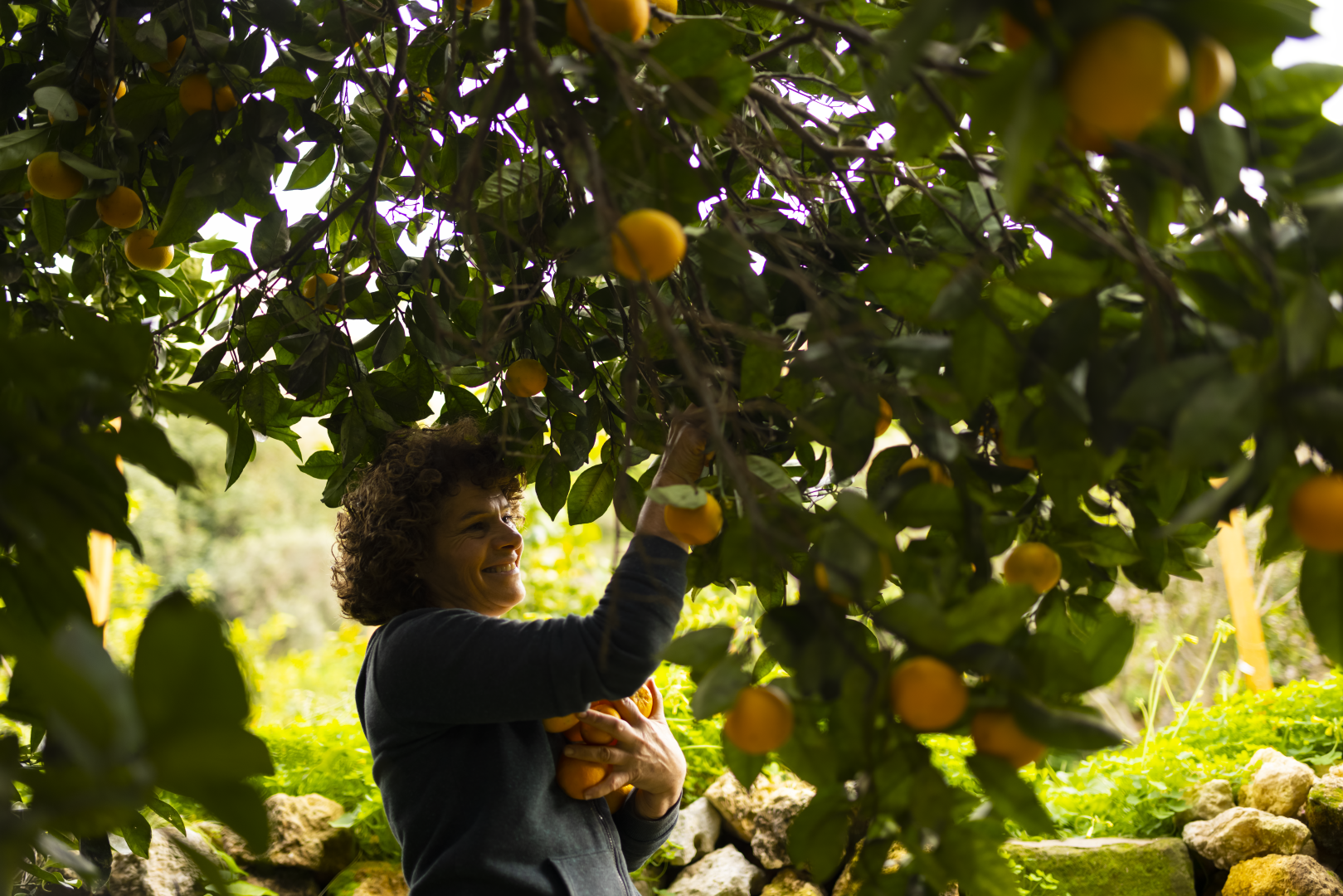We met Maria, an organic farmer based in Gozo, on a sunny December day. She manages an orange grove in the idyllic San Blas valley of Nadur.
Maria’s family has occupied this land for centuries. She has fond memories of the land, saying ‘when I was a kid I used to come here with my grandmother. She was a widow, so she continued working the land. I was the oldest, so I was the most responsible. I think that’s why she chose me.’ Maria believes that these moments with her grandmother were the seeds that grew into her love of the countryside.
Although she developed an early tie to the land, Maria tells me that farming was not always her full-time job saying, ‘When my kids were in school, I started to come more regularly, and that’s when I started full-time.’ Today the farm is still very much a family affair. As we walk together, we meet Maria’s mother, Rose, who she jokingly calls ‘il-manager’.
Cared for by the generations that preceded Maria, the branches of her 300 trees are weighed down by the oranges. The depth of the valley leads to taller than average trees. Even with intelligent pruning, they inevitably search for light to grow. Eager to let nothing go to waste Maria tells me, ‘We do get the fruit from the top…’ she chuckles and remarks that, ‘we’re like monkeys. [My mother] throws down the oranges and I catch them.’
Maria guides me to an area she terms ‘the kitchen garden’. Here she plants a medley of different crops, using a technique called companion planting. Unlike conventional farms which tend towards a monoculture – growing exclusively one crop in each field – Maria mixes in an effort to increase biodiversity. This approach, she explains, helps with pest control. She is not afraid of experimentation, Maria points out chilli plants, a papaya tree and a kiwi tree.
Unlike some other organic farmers, Maria never used conventional pesticides telling me, ‘We’ve never sprayed.’ Her transition only came in the mode of distribution, and in obtaining the official certification for organic farming – which she pays for. She explains, ‘we realised that we’re sending organic produce to the pitkalija, and they didn’t really appreciate it.’
This realisation allowed her to shift to selling directly to consumers. Today, she invites people to her farm and sells at The Veg Box in Manikata and Vincent’s Eco Farm in Imġarr, which allows her produce to be better appreciated. She has also connected with local initiatives who champion the same values, such as Ferment Island.
Maria also implements the use of natural mulching, for which she benefits from government funding. She has also found success in convincing other farmers in the area to enter into the same initiative.
Nevertheless, she wonders why government funds seemingly give preference to conventional farming practices. Maria understands her role as an organic farmer as providing food, she also pays great attention to caring for our natural environment. Maria shares her frustration, saying ‘we’re the ones who are looking after the country, we have to pay, while conventional farmers don’t.’ She finds trouble rallying other farmers to switch to using better farming methods.
Our conversation was marked by an unquestionable enthusiasm and passion for agriculture. She tells me, ‘to do this work, you have to love it.’
